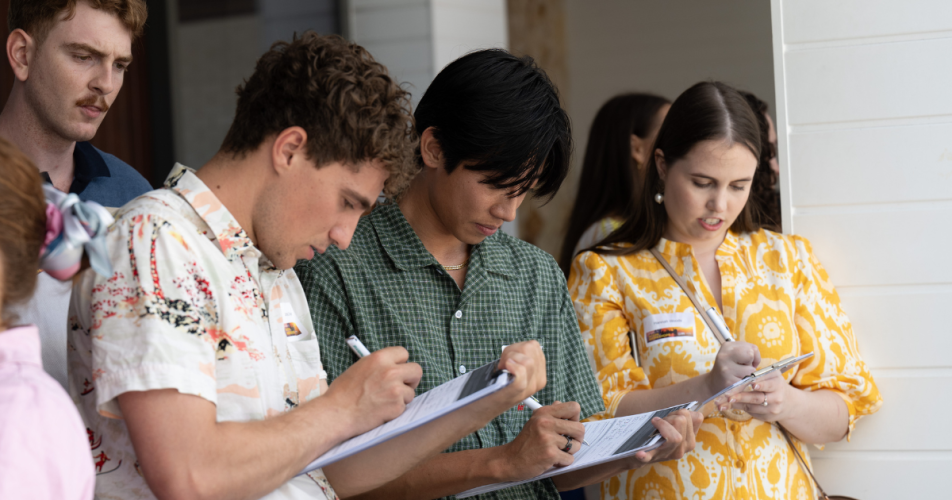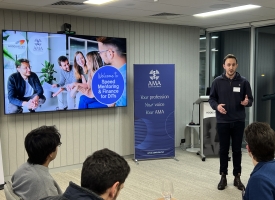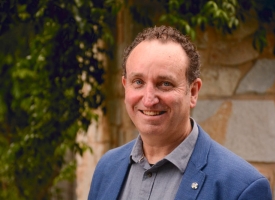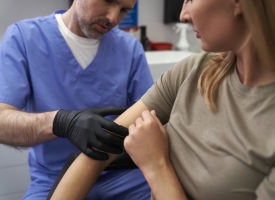Support lacking for medical students
AMA Queensland Committee of Doctors in Training Chair Dr Emma Hodge spoke to ABC Radio Brisbane Mornings presenter Steve Austin about the Commonwealth Prac Payment program and the need to better support medical students.

Transcript: AMA Queensland Committee of Doctors in Training Chair Dr Emma Hodge, ABC Radio Brisbane, Mornings with Steve Austin, Tuesday 1 June 2025
Subject: Support for medical students
STEVE AUSTIN: If you studied nursing, midwifery, teaching or social work, what was it like to balance your mandatory clinical practise with holding down a job and surviving, you know, making an income? From today, 1 July, students studying in those areas will receive up to $331 a week for their mandatory work placements, their clinical practise. Students in other degrees, however, with similar arrangements or requirements, won't receive any money. That includes vet science, physiotherapy, paramedicine, psychology, occupational therapy and medicine. Let's look at this a bit further. Dr Emma Hodge is the Chair of the AMA Queensland's Committee of Doctors in Training. Dr Emma Hodge, when did you graduate from medicine?
DR EMMA HODGE: So I'm PGY5, meaning I graduated five years ago.
STEVE AUSTIN: What does PGY stand for?
DR EMMA HODGE: Postgraduate year five, meaning I've been a doctor for five years.
STEVE AUSTIN: Okay, all right. So how many hours of clinical placement did you have to do to get your medical qualifications?
DR EMMA HODGE: I did a six-year undergraduate degree and I had to do 4,000 hours of clinical placement.
STEVE AUSTIN: How did they affect you? What was that like, particularly financially, Dr Emma Hodge?
DR EMMA HODGE: Medical school was a very demanding period of my life, mentally, physically and financially. I had to work as a tutor, an admin officer and a research assistant. So I had three jobs throughout my time in medical school.
STEVE AUSTIN: Crikey.
DR EMMA HODGE: I was fortunate that I had studied a year of psychology before I went into medicine, so I had some savings, but it really wasn't enough. I really did have to maintain part-time work amidst full-time placements, which are often far from home and leave very little time for paid work.
STEVE AUSTIN: This is why we wanted to speak with you today, because from today, students studying nursing, midwifery and in other areas will receive money for their mandatory placements. Do medical students drop out of the health system because of the financial stress, the financial effects?
DR EMMA HODGE: Yes, they do. I know quite a few students in my cohort who had to defer their studies temporarily to work and save up. For others, the financial stress can mean trade-offs such as choosing accommodation that's further away from placement, meaning a long commute, or maybe skipping study resources that we couldn't afford, or just contributing to the stress that is already inherent as being of a medical student.
STEVE AUSTIN: I'm puzzled as to why this has arisen in recent times. It didn't always used to be this tough on medical students, Emma, or am I wrong?
DR EMMA HODGE: I think that the amount of placement that we're required to do has increased over time and that's great from a clinical learning experience, but it also means we’re spending more time doing unpaid work and that is really challenging in the current economic environment.
STEVE AUSTIN: I guess a medical degree has always been intellectually taxing, but I don't recall it ever being so financially taxing for someone training to become a doctor. It seemed to be a smoother or a less cost-expensive process in years gone by.
DR EMMA HODGE: Yeah, that's right, and you're expected to be professional, alert and learning constantly, yet you're quietly battling how to afford fuel, rent and groceries.
STEVE AUSTIN: Right. What are your thoughts on these prac payments as they're called for nurses, midwives, teachers, and those studying social work?
DR EMMA HODGE: I think it's a really positive step towards supporting clinical training and recognising the important contributions of these students. But medical students also invest significant time and effort in their clinical placements and often contributing quite substantially to patient care, particularly given the current healthcare worker shortage. So, I think we're quite confused around why they're not applying to medical students, because we do actually have quite long placements as well, much higher than these other degrees and often in a very high-pressure clinical environment where we can't just pick up a casual job on the side.
STEVE AUSTIN: Absolutely. Dr Emma Hodge. She's Chair of AMA Queensland's Committee of Doctors in Training. So, Emma, why is that? The rigours of a medical degree are significant and the pressures come from a range of areas. What have you learnt being on the AMA Queensland's committee for the area of doctors who are training to become fully-fledged medicos?
DR EMMA HODGE: One of our big concerns for doctors is wellbeing. We know that being a doctor, both being a medical student and training to be a doctor, as well as working as a doctor and gaining your specialist qualification, is a very high-stress environment and that can lead to burnout and fatigue. Particularly when you compound that with financial stress of trying to make sure you have enough money to pay your rent and put food on the table, that really compounds the risk of burning out and potentially dropping out of what is a very important career.
STEVE AUSTIN: Is there a belief that medical students might not need support to complete their placements because they come from wealthier families? There is this cultural stereotype, Emma, that if you're a doctor, you're wealthy.
DR EMMA HODGE: I do believe there's probably some misconception around that. The argument that medical students will earn well later doesn't really help those that are struggling now. It also reinforces privilege, meaning that those with savings or family support are the only ones who can actually study medicine, which is not equitable or consistent and doesn't help those coming from rural and remote areas, which are really the medical students that we need to help serve our future workforce.
STEVE AUSTIN: Do you need a lot of family support to get through a medical degree?
DR EMMA HODGE: Potentially, and it depends on whether you're you are living at home or living away from home. I had to move away from home to study my medical degree and that obviously increased the costs associated with getting through the course.
STEVE AUSTIN: Do you regret it? Do you regret your career choice?
DR EMMA HODGE: Not in the slightest. It is the best decision I've ever made and every sacrifice has been worth it and I thoroughly enjoy my career, but that's not to say that it hasn't been without challenges.
STEVE AUSTIN: So today nursing, midwifery, teaching, and social work students, they now get prac payments. Would you like to see, or do you see a genuine need for prac payments for medical students as well?
DR EMMA HODGE: Absolutely. I think it's really critical to address the placement poverty that affects medical students and really support all students taking mandatory placement. It is quite essential for having a diverse and representative workforce so that we can give them the support they need to complete their education and contribute to addressing that workforce crisis that affects our healthcare system, particularly in rural areas.
STEVE AUSTIN: But Dr Emma Hodge, you did it. You did it without the paid placements. You got there. How did you do it?
DR EMMA HODGE: I had to manage multiple part-time jobs. So, I worked as a tutor, an admin officer and a research assistant. I also spent a year saving money while studying psychology and I didn't go straight into medicine. So that helped quite a bit.
STEVE AUSTIN: I'm wondering whether that process, because it teaches you a range of other disciplines is actually an advantage. In other words, it makes you tougher or stronger or more adaptable as a doctor.
DR EMMA HODGE: Yes, to some extent, although I think there's a number of challenges just inherently as a medical student, so I don't think we need to add additional stress on medical students.
STEVE AUSTIN: Fair enough. I appreciate you telling me your personal story, Dr Emma Hodge. Thank you very much for your time.
DR EMMA HODGE: Thank you.


